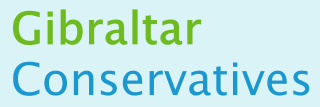The Conservative Party, officially the Conservative and Unionist Party and colloquially known as the Tories, is one of the two main political parties in the United Kingdom, along with the Labour Party. It is the current governing party, having won the 2019 general election, and has been the primary governing party in the United Kingdom since 2010. The party has been described as both right-wing and centre-right. It encompasses various ideological factions including one-nation conservatives, Thatcherites, and traditionalist conservatives. The party holds the annual Conservative Party Conference, at which senior Conservative figures promote party policy.

The 1997 United Kingdom general election was held on Thursday, 1 May 1997. The governing Conservative Party led by Prime Minister John Major was defeated in a landslide by the Labour Party led by Tony Blair, achieving a 179-seat majority.

The 1992 United Kingdom general election was held on Thursday 9 April 1992, to elect 651 members to the House of Commons. The election resulted in the fourth consecutive victory for the Conservative Party since 1979, with a majority of 21 and would be the last time that the Conservatives would win an overall majority at a general election until 2015. It was also the last general election to be held on a day which did not coincide with any local elections until 2017. This election result took many by surprise, as opinion polling leading up to the election day had shown a narrow but consistent lead for the Labour Party under leader Neil Kinnock.
Progressive Conservative Party prominently refers to a group of Canadian political parties that are distinct and on the centre-right of the political spectrum:
The Conservative Party is a name used by many political parties around the world. These political parties are generally right-wing though their exact ideologies can range from center-right to far-right.
Progressive Conservative may refer to an advocate of progressive conservatism.

The 2005 United Kingdom general election was held on Thursday 5 May 2005, to elect 646 members to the House of Commons. The governing Labour Party, led by Tony Blair, won its third consecutive victory, with Blair becoming the second Labour leader after Harold Wilson to form three majority governments. However, its majority fell to 66 seats compared to the 167-seat majority it had won four years before. This was the first time the Labour Party had won a third consecutive election, and remains the party's most recent general election victory.

The 2010 United Kingdom general election was held on Thursday 6 May 2010, with 45,597,461 registered voters entitled to vote to elect members to the House of Commons. The election took place in 650 constituencies across the United Kingdom under the first-past-the-post system.
App, Apps or APP may refer to:

The leader of the Conservative Party is the highest position within the United Kingdom's Conservative Party. The current holder of the position is Rishi Sunak, who was elected to the position on 24 October 2022, following his unopposed victory in the party's leadership election.

Cornwall is administered as a county of South West England whose politics are influenced by a number of issues that make it distinct from the general political scene in the wider United Kingdom, and the political trends of neighbouring counties. Its position on the geographical periphery of the island of Great Britain is also a factor.

The 2014 European Parliament election was the United Kingdom's component of the 2014 European Parliament election, held on Thursday 22 May 2014, coinciding with the 2014 local elections in England and Northern Ireland. In total, 73 Members of the European Parliament were elected from the United Kingdom using proportional representation. England, Scotland and Wales use a closed-list party list system of PR, while Northern Ireland used the single transferable vote (STV).

The 2015 United Kingdom general election was held on Thursday 7 May 2015 to elect 650 Members of Parliament to the House of Commons. It was the only general election held under the rules of the Fixed-term Parliaments Act 2011 and was the last general election to be held before the United Kingdom would vote to end its membership to the European Union (EU). Local elections took place in most areas of England on the same day.

The 2017 United Kingdom general election was held on Thursday 8 June 2017, two years after the previous general election in 2015; it was the first since 1992 to be held on a day that did not coincide with any local elections. The governing Conservative Party remained the largest single party in the House of Commons but lost its small overall majority, resulting in the formation of a Conservative minority government with a confidence and supply agreement with the Democratic Unionist Party (DUP) of Northern Ireland.

The Conservative Party in Gibraltar is the part of the Conservative Party that operates in the British Overseas Territory of Gibraltar. It is a branch of the South West Region of the Conservative Party. The party does not field candidates in the local elections in the territory, and so far has only ever stood candidates for the European Parliament constituency of South West England and Gibraltar.
Opinion polling for the next United Kingdom general election is continually being carried out by various organisations to gauge voting intention. Most of the polling companies listed are members of the British Polling Council (BPC) and abide by its disclosure rules. The dates for these opinion polls range from the 2019 general election on 12 December to the present day.
Conservative Party leadership elections were held in the following countries in 2022:
This page is based on this
Wikipedia article Text is available under the
CC BY-SA 4.0 license; additional terms may apply.
Images, videos and audio are available under their respective licenses.








